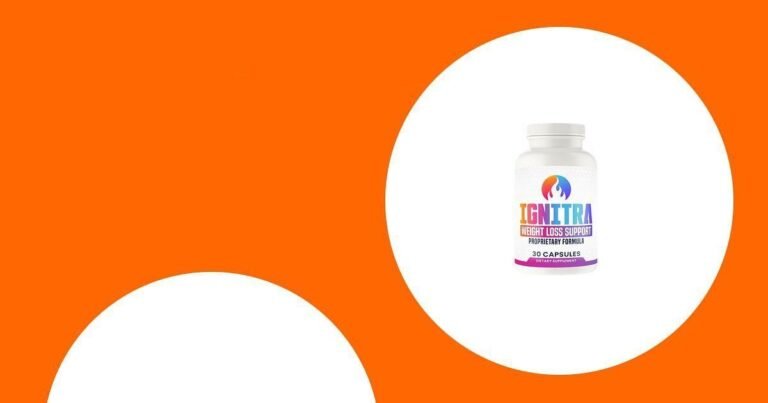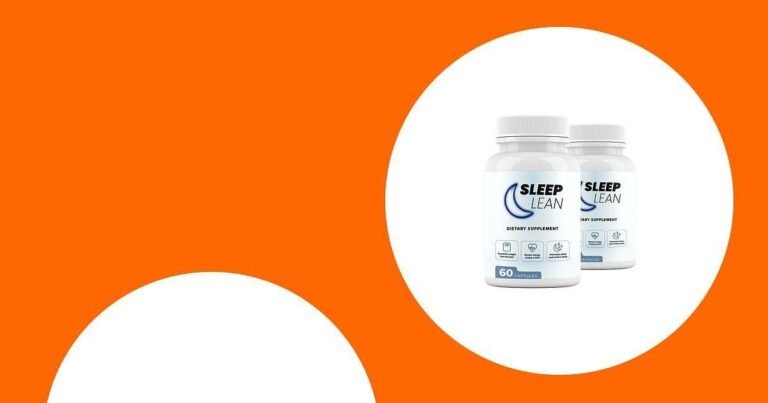Natural vs. Synthetic Supplements: Natural Metabolism Booster Supplements
A whopping 75% of Americans take dietary supplements. The market is expected to hit $230 billion by 2027. This growth is mainly because of vitamin deficiencies caused by farming methods that deplete soil nutrients.
Many people now choose organic and whole food supplements to make up for this nutrient gap. The main difference between natural and synthetic supplements is their source. Natural supplements come from whole foods, while synthetic ones are made in labs.
==> Watch the Purple Peel Exploit Now And Turbocharge Your Calorie Burn
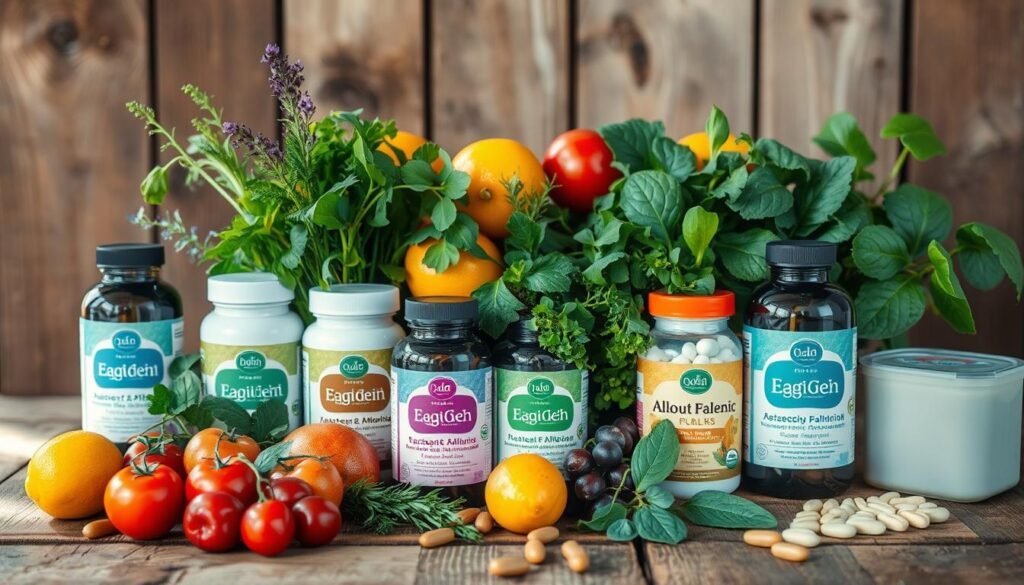
It’s important to know the pros and cons of natural vs. synthetic supplements. Natural supplements, like those from fruits, veggies, and herbs, offer a more complete nutrition approach. On the other hand, synthetic supplements, made in labs, might not have the same benefits as natural ones.
As more people focus on their health, the need for natural metabolism boosters grows. Many are turning to organic and whole food supplements as a better choice.
Key Takeaways
- Natural supplements are derived from whole foods, while synthetic supplements are lab-made.
- The market for dietary supplements is expected to reach $230 billion by 2027.
- Natural supplements offer a more holistic approach to nutrition, with possible benefits like better absorption and bioavailability.
- Synthetic supplements may lack the synergistic effects and bioavailability of natural supplements.
- Organic supplements and whole food supplements are becoming increasingly popular as a natural alternative to synthetic supplements.
- Natural vs. synthetic supplements is a topic of interest, with many considering the benefits and drawbacks of each type.
Understanding Natural Supplements
Natural supplements are getting more popular as people want to Boost their metabolism and health. They are made from plants and minerals, unlike synthetic ones. Natural supplements help fill diet gaps, giving us essential vitamins and minerals.
Some benefits of natural supplements include:
- Boosting Metabolism and energy levels
- Supporting weight loss and overall health
- Providing essential vitamins and minerals
What Are Natural Supplements?
Natural supplements are dietary products made from natural ingredients. They help support health and are often chosen over synthetic ones.
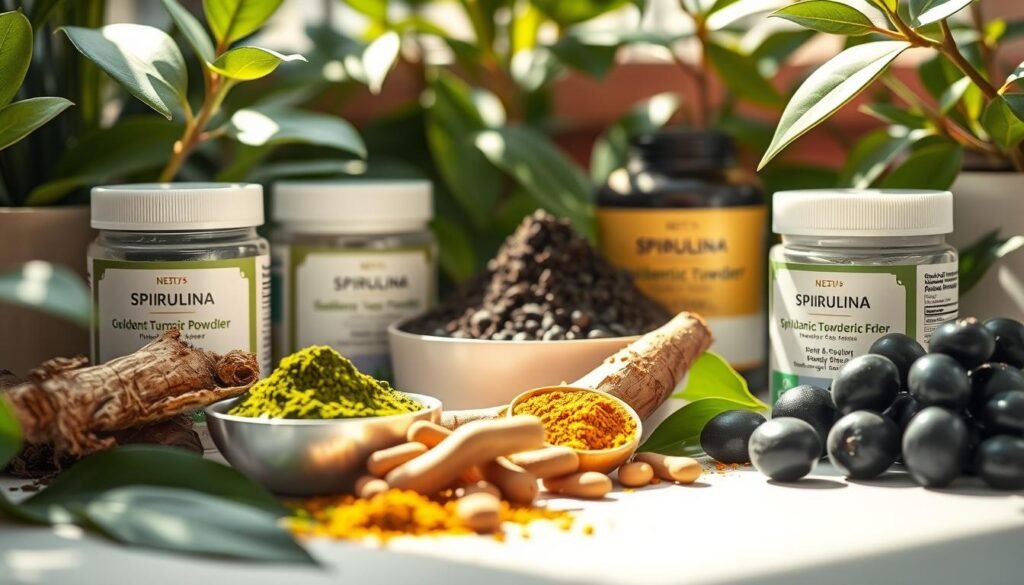
Benefits of Natural Supplements
Natural supplements have many benefits, like boosting metabolism and health. They are also safer and more effective than synthetic ones. Vitamin supplements and health supplements are popular for supporting health. Dietary supplements help fill diet gaps, giving us needed vitamins and minerals.
| Supplement Type | Benefits |
|---|---|
| Vitamin Supplements | Boosting metabolism and energy levels |
| Health Supplements | supporting overall health and well-being |
| Dietary Supplements | Filling nutritional gaps in the diet |
The Rise of Synthetic Supplements
Synthetic supplements are getting more popular. Many people choose them for their convenience and lower cost. These supplements are made in labs to act like natural nutrients. But, they can also be tainted with fake versions, which can harm your health.
One big plus of synthetic supplements is how affordable they are. They cost less to make and buy than natural ones. They also last longer, making them easier to keep and share. Yet, they might not be the best choice for everyone.

Defining Synthetic Supplements
Synthetic supplements are made in labs to offer health benefits like natural ones. They include things like minerals, vitamins, and amino acids. But, it’s key to know the risks, like getting fake versions.
Common Types of Synthetic Supplements
Some common synthetic supplements are:
- Mineral supplements, such as calcium and iron
- Vitamin supplements, such as vitamin C and vitamin D
- Amino acid supplements, such as protein powder
It’s important to pick a trusted brand for synthetic supplements. This helps avoid fake versions. Choosing wisely ensures you get a safe and effective product.
Comparing Efficacy: Natural vs. Synthetic
The debate between natural and synthetic Supplements for boosting metabolism is ongoing. Natural supplements, like herbal ones, have been shown to increase metabolism and aid in Weight Loss. In contrast, synthetic supplements, including dietary ones, are also popular for their benefits.
Research shows natural vitamin E is absorbed better than synthetic. A diet full of fruits, vegetables, and whole grains can lower heart disease risk. For instance, eating legumes daily can lower LDL cholesterol by 5% and heart disease risk by 5-6%.

Effectiveness in Boosting Metabolism
Natural supplements can Boost Metabolism and aid in Weight Loss. Dietary supplements, though, may have mixed effects on health. Some studies suggest B vitamins like folic acid improve brain function, but others find no clear benefits.
User Experiences and Testimonials
Many people have seen positive results with natural supplements, noting increased energy and better health. Yet, it’s important to remember that results can vary. Always talk to a healthcare professional before starting any supplements. This way, you can make informed choices about your health.
Nutritional Profile: What’s Inside?
When looking at supplements, the nutritional profile is key. Whole food, organic, and vitamin supplements differ a lot. Natural supplements, like whole food ones, are made from real foods. They help our bodies absorb nutrients better.
On the other hand, synthetic supplements might have artificial stuff and fillers. These can harm our health. For example, synthetic vitamins lack important minerals and helpers for our body to use them right.
Ingredients in Natural Supplements
Natural supplements, like organic ones, have a mix of ingredients. They include fruits, veggies, herbs, and more. These supplements are safer and work well with our bodies.
Ingredients in Synthetic Supplements
Synthetic supplements are made from chemicals. They might have leftover chemicals from making them. Even though they have lots of vitamins and minerals, they can be risky.
It’s important to pick good makers of supplements. Look for those who follow strict rules and test their products.
Some examples of natural and synthetic supplements include:
- Whole food supplements: made from real foods, such as fruits and vegetables
- Organic supplements: made from organic ingredients, free from artificial additives
- Vitamin supplements: may be natural or synthetic, depending on the manufacturer

In conclusion, the nutritional profile of supplements is very important. choosing natural supplements like whole food and organic ones is safer. They help our bodies use nutrients better and are less likely to cause problems.
| Supplement Type | Ingredients | Benefits |
|---|---|---|
| Natural Supplements | Fruits, vegetables, herbs | Enhanced absorption, bioavailability, lower risk of side effects |
| Synthetic Supplements | Chemical compounds, artificial ingredients | High potencies, but can be toxic |
Potential Side Effects
It’s important to know about the side effects of health supplements. Both natural and synthetic options can have risks. Lab-made supplements, for example, might be harmful because they’re made in a lab. Also, counterfeit supplements can be dangerous because they might have the wrong ingredients or labels.
Natural supplements are usually safer, with fewer side effects. But, it’s key to pick high-quality ones from trusted makers. This way, you can avoid bad reactions. Some risks of synthetic supplements include:
- Interactions with medications
- Adverse reactions due to incorrect labeling or contamination
- Allergic responses to certain ingredients
Natural supplements, on the other hand, work well together and are easier for the body to use. Choosing natural health supplements can help you avoid harmful side effects. This way, you can stay healthy and feel good.

| Supplement Type | Potential Risks |
|---|---|
| Natural Supplements | Lower risk of adverse reactions, allergic responses, and interactions with medications |
| Synthetic Supplements | Higher risk of adverse reactions, allergic responses, and interactions with medications due to synthetic composition |
Regulatory Oversight
The regulation of dietary supplements is key to their safety and effectiveness. In the U.S., the Food and Drug Administration (FDA) oversees the industry. There are over 85,000 dietary supplement products in the U.S. About half of U.S. adults and one-third of children use them.
The Dietary Supplement Health and Education Act (DSHEA) of 1994 sets guidelines for these products. It defines dietary supplements and outlines their regulation. The DSHEA considers them a subset of foods, leading to a post-market approach. This means manufacturers don’t need to prove their products are safe or work before selling them. But, they must tell the FDA about new ingredients before marketing.

- Post-market site audits for Good Manufacturing Practice (GMP) compliance
- Review of notifications for new dietary ingredients
- Investigation of adverse events
The FDA enforces rules, does inspections, and reviews notifications for dietary supplements. Manufacturers must tell the FDA 75 days before selling supplements with new ingredients. The FDA’s oversight ensures dietary supplements are safe and effective for consumers.
Choosing the Right Supplement for You
Choosing a supplement is all about your health goals and needs. With so many options, like natural vs. synthetic, it can be hard to decide. Natural supplements, such as organic and whole food, are better absorbed and safer.
Think about these things when picking a supplement:
- Your dietary needs and restrictions
- The possible effects on other medicines or supplements
- The quality and where the ingredients come from
Whole food supplements, made from dried foods, are a good choice instead of synthetic ones.
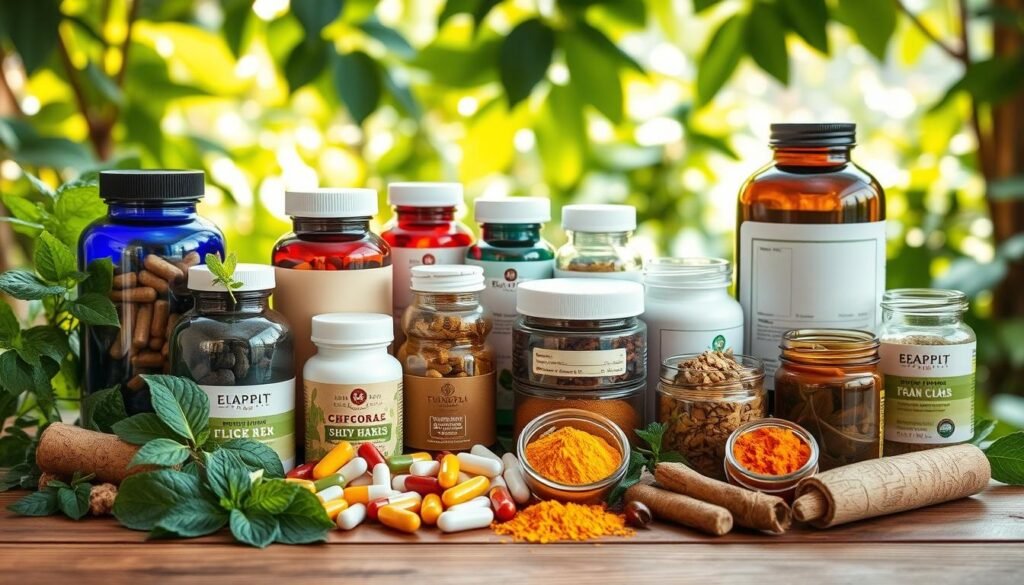
Choosing between natural and synthetic supplements depends on your personal needs. By looking at these points and talking to a doctor, you can pick the best supplement for you.
| Supplement Type | Benefits | Risks |
|---|---|---|
| Natural Supplements | Enhanced absorption, lower risk of side effects | Potential interactions with other medications |
| Synthetic Supplements | Higher bioavailability, precise dosing | Potential toxicity, imbalances, or deficiencies |
The Popularity of Metabolism Boosters
The demand for metabolism boosters is rising fast. People are more aware of the need for a healthy weight and well-being. Many are using lab-made supplements and dietary supplements to help with weight loss. But, not all supplements are safe, and some can harm your health.
Recent surveys show many athletes and active people use health supplements. They want to improve their performance and reach their fitness goals. Common ingredients include protein, creatine, and caffeine. It’s important to pick supplements from trusted brands and follow the dosage to avoid risks.
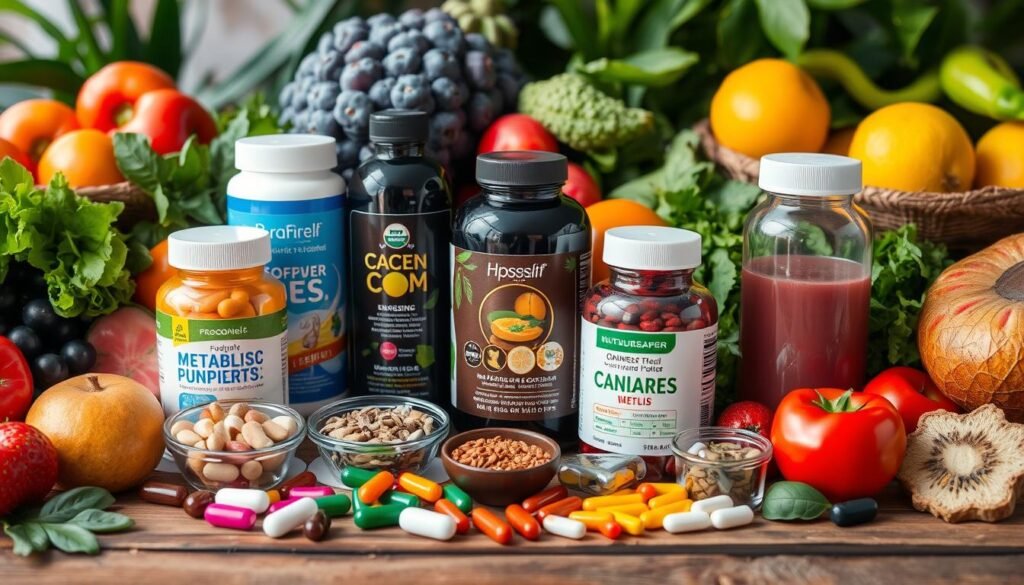
Choosing the right supplement is key. Some need energy boosters, while others need muscle recovery aids. By picking the right dietary supplements and health supplements, you can improve your nutrition and health.
In summary, more and more people are using metabolism boosters. They are looking at lab-made supplements and health supplements to support their health and fitness. By making informed choices, you can enjoy the benefits of supplements safely.
Tips for Safe Supplement Use
Adding natural supplements to your routine can be very beneficial. But, it’s key to keep safety in mind. Always talk to a healthcare expert before starting any new supplement. They can check if it’s right for you and won’t mix badly with your meds.
Also, make sure to read the labels well. Look for certifications from trusted groups. This shows the product is of high quality and safe to use.
Consulting Healthcare Professionals
Talking to a doctor before starting supplements is a smart move. They can tell you the right amount to take and if there are any risks. They also know how it might affect any health issues you have.
This way, you can use supplements safely and get the most out of them.
Reading Labels and Certifications
When picking supplements, always check the labels carefully. Look for clear ingredient lists and herbal supplements certifications from outside groups. Also, make sure the claims about the benefits are backed up by science.
Good brands will share information on how they make their products. This includes following strict quality rules. This gives you confidence in what you’re taking.
FAQ
What are the key differences between natural and synthetic supplements?
Natural supplements come from whole foods like fruits and herbs. Synthetic ones are made in labs. Natural ones aim to give the body a wide range of nutrients. Synthetic ones focus on specific, lab-made compounds.
What are the benefits of natural supplements?
Natural supplements can boost your metabolism and energy. They support your health and well-being. They are full of vitamins and minerals that your body can easily use.
What are the common types of synthetic supplements?
Synthetic supplements are made to Boost metabolism and aid in weight loss. They include products with caffeine and thermogenic formulas. These are made in labs and may have artificial ingredients.
How do natural and synthetic supplements compare in terms of efficacy for boosting metabolism?
Studies show natural supplements like green tea and caffeine can Boost Metabolism. Many people also share positive experiences with natural supplements for Weight loss.
What are the differences in the nutritional profiles of natural and synthetic supplements?
Natural supplements come from whole foods, giving you a wide range of nutrients. Synthetic ones might have artificial ingredients and lack the nutritional value of natural ones.
What are the possible side effects of natural and synthetic supplements?
Both types of supplements can have side effects. This includes interactions with medications or allergic reactions. Always check with a healthcare professional and read labels to understand the risks.
How are natural and synthetic supplements regulated by the FDA?
The FDA has different rules for natural and synthetic supplements. Natural ones have less strict rules. Synthetic ones go through more checks to ensure they are safe and work well.
What factors should I consider when choosing a supplement for boosting metabolism?
When picking a supplement, think about your health goals and any health conditions. Also, consider the supplement’s quality and source. Talking to a healthcare professional can help you make a good choice.
Why are metabolism boosters so popular, and what are the possible risks?
Metabolism boosters are popular for Weight loss and a healthy lifestyle. But, they can also have risks like bad reactions or interactions with other drugs.
What are some tips for using supplements safely?
To use supplements safely, talk to a healthcare professional and read labels well. Choose high-quality supplements from trusted sources. Be aware of side effects and interactions for your health.
